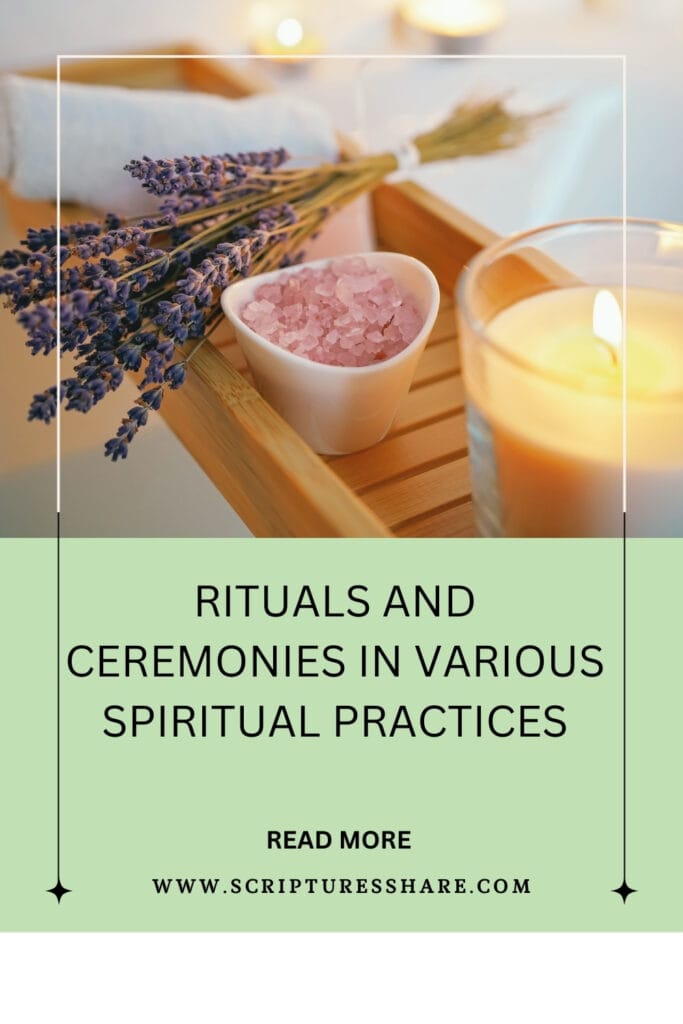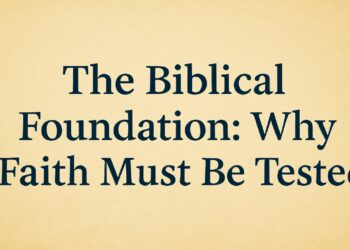No products in the cart.
The Significance Of Rituals and Ceremonies In Various Spiritual Practices
This post contains paid and/or affiliate links. I make a small commission at no extra cost to you. Please see our Privacy Policy.
Rituals and ceremonies have always been key in human history. They span across cultures and religions. These practices give us structure, meaning, and a sense of belonging. We’ll look into the significance of rituals and ceremonies in spiritual practices. We’ll see how they help us grow and build community.
The importance of community in rituals and ceremonies
Rituals and ceremonies are vital for community and sense of belonging. In today’s world, they bring people together. They offer shared experiences that build connections and unity.
- Bringing people together: Rituals and ceremonies help people from different backgrounds meet. They can be religious, cultural, or community events. These gatherings help us connect and feel united.
- Promoting social cohesion: Taking part in rituals and ceremonies strengthens our bonds. It helps us share a common identity. This unity fosters harmony and a sense of belonging.
- Cultivating a sense of support: Rituals and ceremonies offer a chance for support. They help us connect, empathize, and support each other. This creates a strong sense of community.

In today’s world, rituals and ceremonies are a beacon of connection. They offer a space to celebrate, grieve, and share experiences. These shared moments create lasting bonds and a deep sense of belonging.
The decline of traditional rituals in modern society
Traditional rituals have seen a decline in modern society. Science and technology have explained many things once attributed to rituals. This has reduced the need for some rituals.
This decline might seem like progress, but it has its downsides. Losing traditional rituals can make us feel disconnected from our roots. The decline of traditional rituals in modern society has left a gap. We need new rituals and ceremonies to fill this void.
- The decline of traditional rituals has led to a loss of connection with cultural and spiritual heritage.
- Modern society’s focus on science and technology has reduced the need for some rituals.
- People in modern society often feel disconnected. They seek new rituals and ceremonies for meaning and connection.
As we move forward in modern society, we must value traditional rituals. We need to find new ways to fill the gap they left. By embracing and creating new rituals, we can regain connection, meaning, and purpose.
Exodus 29:37 (ESV):
“Seven days you shall make atonement for the altar and consecrate it, and the altar shall be most holy. Whatever touches the altar shall become holy.”
The power of creating personal rituals and ceremonies
Without traditional rituals, we can make our own. This makes our experiences more personal and meaningful. It lets us follow our own values and beliefs.
Creating these rituals can make us feel powerful, give us purpose, and bring us fulfillment.
- Empowerment: Creating personal rituals and ceremonies gives us control over our spiritual practices. We can make them fit our unique needs and desires.
- Purpose: Personal rituals and ceremonies help us find meaning in life. They connect us to something bigger and give us direction.
- Fulfillment: Doing personal rituals and ceremonies can make us feel deeply satisfied. They offer a chance for self-reflection and personal growth.
By adding personal rituals and ceremonies to our lives, we tap into the power of intention. We create moments of significance. Whether it’s daily meditation, monthly gratitude, or annual celebrations, these rituals can enrich our spiritual journey.
“Rituals are the framework of our shared humanity; they bind us together in purpose, meaning, and connection.”
The role of rituals in personal growth and transformation
Rituals and ceremonies are key to our growth and transformation. They create a sacred space for self-reflection, healing, and growth. These transformative ceremonies help us connect with ourselves and reach deeper levels of consciousness.
Through rituals, we find purpose and direction in life. They help us set intentions, release what holds us back, and manifest our dreams. Rituals give us structure and meaning, guiding us towards personal growth and self-improvement.
The power of connecting with oneself
- Rituals create a space for self-reflection and introspection. They let us pause, breathe, and connect with our inner world.
- They help us disconnect from daily distractions and find our true selves.
- Through self-reflection, we understand our thoughts, emotions, and desires better. This enables personal growth and transformation.
Leviticus 23:4-5 (NIV):
“These are the Lord’s appointed festivals, the sacred assemblies you are to proclaim at their appointed times: The Lord’s Passover begins at twilight on the fourteenth day of the first month.”
Accessing deeper levels of consciousness
- Rituals open a door to deeper consciousness and spirituality.
- Through meditation, prayer, or contemplation in rituals, we tap into our intuition and inner wisdom.
- By quieting our minds and opening to higher guidance, we expand our perspectives and understand our life’s purpose.
Cultivating a sense of purpose and direction
- Rituals help us set intentions and align our actions with our values and goals.
- By creating rituals that reflect our beliefs and aspirations, we find purpose and direction in life.
- Through rituals, we create a structure that keeps us focused and motivated. This guides us towards personal growth and fulfillment.
In summary, rituals deeply impact our personal development. They offer a space for self-reflection, help us access deeper consciousness, and foster purpose and direction. By adding transformative ceremonies to our lives, we start a journey of personal growth and transformation.
“Through ceremonies, we honor our past, find meaning in the present, and set intentions for the future.”
The significance of purification ceremonies in spiritual practices
In many spiritual practices, purification ceremonies are very important. These ceremonies, often water-based, cleanse our bodies, minds, and spirits. They help us release negative energies, heal, renew, and grow spiritually.
Purification ceremonies have been around for centuries, valued in many traditions and cultures. Immersing in water or pouring water over the body symbolizes purification. It washes away impurities and offers a fresh start, bringing physical cleanliness and spiritual clarity.
The benefits of purification ceremonies:
- Physical cleansing: Water is known for its cleansing power. Purification ceremonies help clean the body, removing toxins and improving health.
- Emotional release: These ceremonies offer a space to release emotions and negative energies. Immersing in water or letting it flow over the body can be very healing.
- Spiritual growth: Purification ceremonies help deepen spiritual connections and promote personal growth. They create a sacred space for reflection and connection with the divine.
- Symbolic transformation: These ceremonies often symbolize change, helping people let go of old patterns and start anew. This can support personal transformation and remind us of the power of change.
Purification ceremonies, whether through water immersion, cleansing baths, or rituals, offer a meaningful way to purify body, mind, and spirit. They are key tools in spiritual practices, helping individuals on a journey of self-discovery, healing, and growth.
The benefits of sound healing in rituals and ceremonies
Sound healing, using instruments like Tibetan singing bowls, brings many benefits in rituals and ceremonies. These ancient practices use sound vibrations to transform participants.
Deep relaxation and stress reduction
Sound healing in rituals and ceremonies can deeply relax participants. The calming sounds from instruments like Tibetan singing bowls ease the mind and body, reducing stress and anxiety. This relaxation helps participants release tension and find deep peace.
Enhanced focus and concentration
Sound healing also improves focus and concentration. The rhythmic tones and vibrations from instruments ground participants, helping them stay focused and present. This focus enhances the connection to the ritual or ceremony, promoting clarity and mindfulness.
1 Corinthians 10:16-17 (NIV):
“Is not the cup of thanksgiving for which we give thanks a participation in the blood of Christ? And is not the bread that we break a participation in the body of Christ? Because there is one loaf, we, who are many, are one body, for we all share the one loaf.”
Promotes overall well-being
Sound healing positively impacts overall well-being. The vibrations from instruments like Tibetan singing bowls can release blocked energy and restore balance. This promotes harmony and alignment, benefiting physical, emotional, and spiritual health.
Awakens the mind, body, and spirit
The power of sound vibrations can awaken the mind, body, and spirit. The unique frequencies from instruments like Tibetan singing bowls stimulate the brain, connect with the body, and awaken the spirit.
This awakening can lead to increased self-awareness, inner exploration, and a deeper spiritual understanding.
Adding sound healing to rituals and ceremonies can greatly enhance the experience. It offers participants a deeper connection to themselves and the collective energy. Whether through Tibetan singing bowls or other sound healing practices, the benefits are vast and transformative.
“In every culture, rituals are the language of the spirit, a sacred dance that unites hearts and souls.”
Conclusion
Rituals and ceremonies are key in personal growth and change in many spiritual practices. They give people a sense of purpose and connection. Even though old rituals may not be as common today, people can make their own that fit their beliefs.
Adding purification and sound healing to personal rituals can deeply impact well-being. Ceremonies like water ceremonies help clean the body, mind, and spirit.
Sound healing, with tools like Tibetan singing bowls, can make us relax, reduce stress, and focus better.
Through rituals, people can reflect, heal, and grow. These practices help us connect with ourselves and find our purpose. The significance of rituals and ceremonies in personal growth is huge.
FAQ
What is the significance of rituals and ceremonies in various spiritual practices?
Rituals and ceremonies hold immense significance in various spiritual practices as they provide a sense of meaning and foster a sense of community. They support personal growth and transformation by creating a space for self-reflection, healing, and growth.
Why is community important in rituals and ceremonies?
Community is important in rituals and ceremonies because it fosters a sense of belonging and provides a shared experience that promotes connections and unity. In an increasingly individualistic society, rituals offer an opportunity to come together and support one another, promoting social cohesion and overall well-being.
What has caused the decline of traditional rituals in modern society?
Traditional rituals have declined in modern society due to the advancements in science and technology. As these advancements have provided answers and explanations for many phenomena, the need for certain rituals to make sense of the world has diminished. However, the decline of traditional rituals has also resulted in a loss of connection, leaving individuals feeling disconnected and in need of new forms of rituals and ceremonies.
How can creating personal rituals and ceremonies be empowering?
Creating personal rituals and ceremonies allows individuals to have the freedom to align with their own values and beliefs. This individualized experience can provide a sense of empowerment, purpose, and fulfillment, as individuals engage in intentional actions and practices that create a personal connection and meaning.
What role do rituals play in personal growth and transformation?
Rituals play a significant role in personal growth and transformation by providing an opportunity to tap into deeper levels of consciousness, connect with oneself, and cultivate a sense of purpose and direction in life. Engaging in intentional actions and practices during rituals can facilitate self-reflection, healing, and overall personal growth.
What is the significance of purification ceremonies in spiritual practices?
Purification ceremonies, such as water ceremonies, are common in many spiritual practices. They serve to cleanse the body, mind, and spirit, and release negative energies or emotions. These ceremonies can be powerful tools for personal healing, renewal, and spiritual growth.
What are the benefits of sound healing in rituals and ceremonies?
Sound healing, often achieved through the use of instruments like Tibetan singing bowls, has been found to have numerous benefits in rituals and ceremonies. It can help induce a state of deep relaxation, reduce stress and anxiety, enhance focus and concentration, and promote overall well-being. The vibrations of sound have a profound effect on the mind, body, and spirit, making them a valuable addition to any ritual or ceremony.















